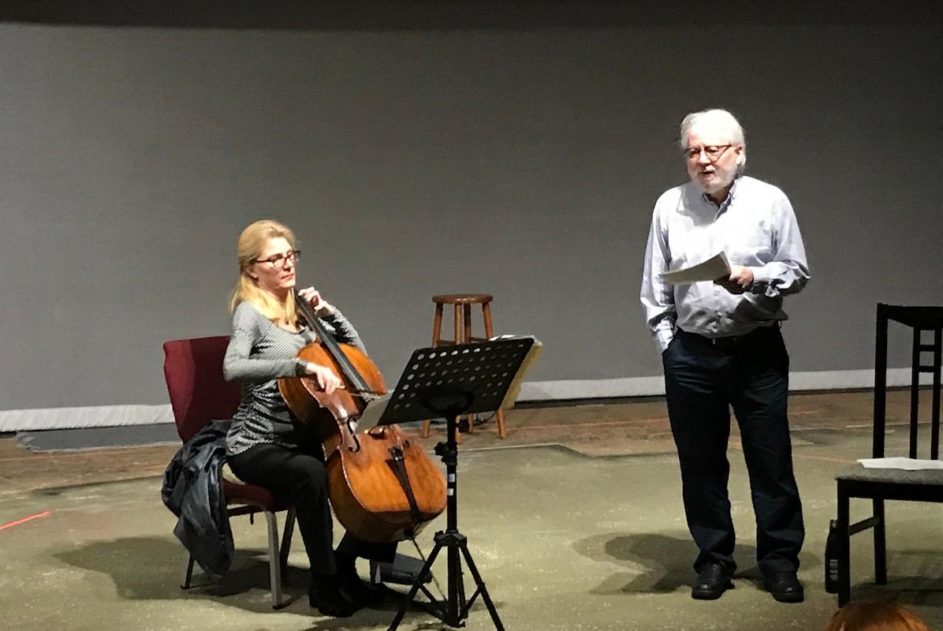During the two decades that surrounded the turn of the 20th century in Italy, when the prominent Italian poet Gabriele D’Annunzio released a new poem, newspapers in the newly unified country cleared their front pages to publish it. But the self-declared greatest Italian poet since Dante Alighieri was also a fascist political provocateur who loved violence, the side of him that was admired by both Benito Mussolini and Adolf Hitler.
Poets today seldom revel in such attention. But they should. Poetry still matters, if only we take the time to listen to it, read it and let it soak in.
Poetry isn’t like food. There’s no way for it to come preprocessed, the way people buy chicken parts these days, cut and covered in plastic wrapping on a plastic tray, so that children growing up in many places don’t even know what a real chicken looks like. Perdue even makes it “fully cooked and frozen for your convenience.” Just “Place frozen pieces in single layer on baking sheet.” How many chickens might be represented is unknown.

Poets Rhea Carmon, Flying Anvil Theatre host and poet Linda Parsons, Knoxville Poet Laureate Marilyn Kallet, Brian Griffin and Susan O’Dell Underwood
Not so with poetry. Every word, every fragment has layers of meaning surrounding it, attaches to some bigger part that, added together, makes a larger whole that is life.
When Linda Parsons, Flying Anvil Theatre board member and organizer of the Poets in Progress poetry reading at Flying Anvil Sunday afternoon in celebration of April, National Poetry Month, stood on stage and quoted Tennessee Williams’ “We live in a perpetually burning building,” there was nothing preprocessed about understanding that the burning building is us. We are all dying slowly. Every ember is part of who we are, or could have been had we valued it before it became fuel.
In “After the Final Decree” she talked about the electricity going out and gradually realizing that power is within us, not at the electrical panel.
When poet Rhea Carmon talked about being abused by life, about writing for survival, there was real music in her words. Her poem about women wearing push-up bras that made breasts so flat you want to lay out a napkin and have a meal, but Alyssa Milano couldn’t breastfeed her baby in public, spoke about just what male society wants from women.
Her poem “My Open Letter to MS” was about her recent diagnosis of the disease and her deeply personal confrontation with it.
Knoxville Poet Laureate Marilyn Kallet recited several short poems, including “How To Get Heat Without Fire,” “Moaning” and “Ode to Disappointment,” about UT’s refusal to fund a travel request.
Susan O’Dell Underwood came filled with humor, insight and keen observation. Her poem “Guilt” was about her feelings toward the worst student in her class. “Song” was about the gentle touching upon waking up in the morning – a sexy poem without being overtly so.
For poet Brian Griffin, being onstage at Poets in Progress was a genuine act of healing. Griffin had been in charge of the children’s department the morning of Sunday, July 27, 2008, at the Tennessee Valley Unitarian Universalist Church when an assassin walked in with a shotgun in a guitar case, intent on killing as many people as he could.
It was Griffin who sent children scurrying out a side door and up the hill away from the massacre. He has suffered 10 years of PTSD as a result of that day. Sunday afternoon was, in part, his return to normal existence, if there can be such a thing after such an event.
His poem “That Look” was about the killer (I refuse to use his name), who thought of himself as a latter-day Confederate soldier. “Things I Might Have Thought in Those Moments” was painful to hear. Griffin spoke about “Rumors ghost us. I walked disembodied through the air above them, saw them in blood in earth, I feeling, smelling, hearing nothing: just the movement of bodies & wounds.”
In “At Greg’s House, After,” about being at the home of Greg McKendry following his funeral, the line “One can live without having survived,” quoting Carolyn Forche, has stuck with me. McKendry and Linda Kraeger died from the attack.
Griffin ends the poem with:
“There are things undone.
There are needs unmet.
There is work to do.
The world around us
Is busy.”
Griffin’s book of poems about this experience and about his life for the past 10 years battling, living with PTSD, will soon be published by Iris Press. Information about Griffin’s book and other books of poetry can be found here.

